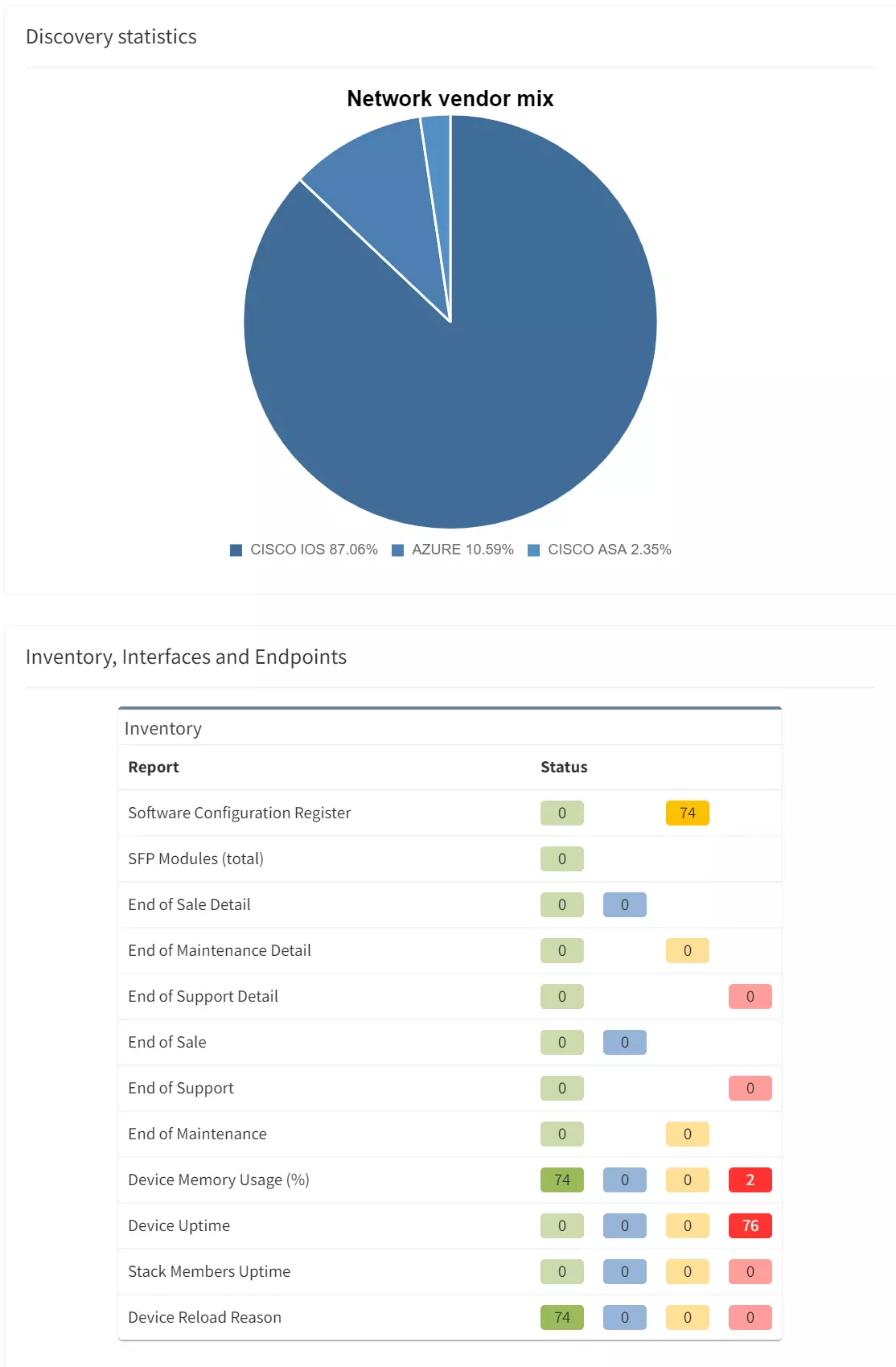

Pete Crocker's (Director of Solutions and Product at IP Fabric) statement, "So you're still doing firefighting, and begging for some time to be able to do Network Automation" highlights a common scenario in many network operations centers, pointing to the ongoing challenge of moving from reactive to proactive network management. This statement serves as a reminder of this challenge, urging networking teams towards network automation. It was also a major theme at the recent NetDevOps Day in NYC!

Networking teams are often mired in the cycle of Reactive Management, responding to issues as they arise, rather than proactively managing the network infrastructure to prevent problems before they occur. This reactive stance is further exacerbated by manual configuration changes which are not only time-consuming but are prone to human error, creating a cascade of issues that demand immediate attention.
The lack of resources, both in personnel and expertise in automation skills, further stalls the progression towards a more efficient and proactive NetDevOps approach. This situation underscores the urgent need for a shift in mindset, from reactive to proactive management, and from manual to automated operations. Embracing this shift is crucial for networking teams to break free from the incessant firefighting, and move towards a more streamlined, automated, and efficient network management paradigm in line with NetDevOps principles.
The opening presentation in our day full of NetDevOps topics underscored the core principles of DevOps -achieving agility and maintaining a stable infrastructure as essential steps to modernize network operations. Reflecting on the '90s where Perl and Expect scripts were used, it seems not much has changed. Network engineers are still using random scripts from random locations (mainly their desktop), and this has become the norm for ensuring network compliance. The need for a more streamlined and robust network configuration, devoid of outdated decision patterns, was clearly expressed as the pathway towards better network automation practices. IP Fabric's platform aligns seamlessly with the NetDevOps model, bringing an API-first approach to networking.
Even in environments where network devices lack built-in APIs, IP Fabric bridges the gap by offering a structured way to access critical network data. This facilitation of data accessibility is crucial for automation, allowing for more seamless interactions and data exchanges between network operations and development teams. Real-time network insights and analytics provided by IP Fabric enable informed decision-making, which is aligned with the model's ethos of promoting agility while ensuring a stable infrastructure. Through this, teams can not only swiftly identify and address network issues, but also foster a collaborative culture, underpinning continuous improvement in network automation practices.
If you are interested in learning more about what you can do with IP Fabric and our API first principles, check out our public Gitlab repository!
The lack of substantial progress in network automation stems from existing complexity and the insufficient availability of direct APIs from hardware vendors. Felix, the CTO at Dartmouth, shared insights on navigating network automation in Brownfield networks - environments with existing, often outdated, infrastructures. Convincing stakeholders of the benefits of network automation is crucial, especially when the network is seen as a cost center rather than a profit center. The emphasis is on improving the bottom line, whether through enhancing reliability or streamlining self-service workflows.
Initiating network automation necessitates a clear plan, which includes choosing the right initial projects and ensuring the team has the required skills. Setting realistic expectations, fostering a culture of continuous feedback, and adopting an iterative approach are fundamental for the success of network automation initiatives.
Nathanael Jean-Francois, the Senior Director of Edge Architecture at NS1, stressed the importance of having a single source of truth (SOT) when managing network configurations and data. Tools like Netbox can serve as centralized repositories, enabling streamlined data management and provisioning processes.

Embracing Simulation and Emulation: The Containerlab Discussion
On the other hand, Pete and Jerrod from Nokia highlighted a new approach to networking, touching on concepts like emulation and simulation. Tools like containerlab, which allow for quick setup of emulated networks, bring in a level of agility and experimentation that is crucial for modern network operations.
However, as with any technology, there are limitations to be considered. The remarks bring to light some inherent challenges, like the ability to emulate only parts of the network or certain technologies, underscoring that a complete Network Digital Twin scenario might be a distant reality. The distinction between simulation and emulation is key here - simulation might offer a more comprehensive representation of network behaviors, but it sometimes fall short as a less realistic environment when compared to emulation. While containerlab provides a robust platform for emulating network configurations, understanding and accepting its limitations is crucial for leveraging its capabilities effectively within the NetDevOps paradigm.
Community-Driven Projects
Some other topics covered open-source tools and community-driven projects like Arista Validated Designs (AVD), which provide extensible data models for network architecture as code. The collaboration within the community accelerates the development and adoption of such tools, promoting a culture of shared learning and continuous improvement. The journey towards NetDevOps is layered with challenges, from overcoming the fear of automation to ensuring a machine-focused process. Engaging different teams, establishing a single source of truth, and embracing open-source tools are steps in the right direction, paving the way for a more agile, automated, and collaborative network operations landscape.
Want to learn more about IP Fabric's Open Source projects? Check out some of our other blog posts:
Getting Started with IP Fabric's APIs
Getting Started with IP Fabric and Netbox
Create your own Reporting with IP Fabric Data

Pete Crocker's (Director of Solutions and Product at IP Fabric) statement, "So you're still doing firefighting, and begging for some time to be able to do Network Automation" highlights a common scenario in many network operations centers, pointing to the ongoing challenge of moving from reactive to proactive network management. This statement serves as a reminder of this challenge, urging networking teams towards network automation. It was also a major theme at the recent NetDevOps Day in NYC!

Networking teams are often mired in the cycle of Reactive Management, responding to issues as they arise, rather than proactively managing the network infrastructure to prevent problems before they occur. This reactive stance is further exacerbated by manual configuration changes which are not only time-consuming but are prone to human error, creating a cascade of issues that demand immediate attention.
The lack of resources, both in personnel and expertise in automation skills, further stalls the progression towards a more efficient and proactive NetDevOps approach. This situation underscores the urgent need for a shift in mindset, from reactive to proactive management, and from manual to automated operations. Embracing this shift is crucial for networking teams to break free from the incessant firefighting, and move towards a more streamlined, automated, and efficient network management paradigm in line with NetDevOps principles.
The opening presentation in our day full of NetDevOps topics underscored the core principles of DevOps -achieving agility and maintaining a stable infrastructure as essential steps to modernize network operations. Reflecting on the '90s where Perl and Expect scripts were used, it seems not much has changed. Network engineers are still using random scripts from random locations (mainly their desktop), and this has become the norm for ensuring network compliance. The need for a more streamlined and robust network configuration, devoid of outdated decision patterns, was clearly expressed as the pathway towards better network automation practices. IP Fabric's platform aligns seamlessly with the NetDevOps model, bringing an API-first approach to networking.
Even in environments where network devices lack built-in APIs, IP Fabric bridges the gap by offering a structured way to access critical network data. This facilitation of data accessibility is crucial for automation, allowing for more seamless interactions and data exchanges between network operations and development teams. Real-time network insights and analytics provided by IP Fabric enable informed decision-making, which is aligned with the model's ethos of promoting agility while ensuring a stable infrastructure. Through this, teams can not only swiftly identify and address network issues, but also foster a collaborative culture, underpinning continuous improvement in network automation practices.
If you are interested in learning more about what you can do with IP Fabric and our API first principles, check out our public Gitlab repository!
The lack of substantial progress in network automation stems from existing complexity and the insufficient availability of direct APIs from hardware vendors. Felix, the CTO at Dartmouth, shared insights on navigating network automation in Brownfield networks - environments with existing, often outdated, infrastructures. Convincing stakeholders of the benefits of network automation is crucial, especially when the network is seen as a cost center rather than a profit center. The emphasis is on improving the bottom line, whether through enhancing reliability or streamlining self-service workflows.
Initiating network automation necessitates a clear plan, which includes choosing the right initial projects and ensuring the team has the required skills. Setting realistic expectations, fostering a culture of continuous feedback, and adopting an iterative approach are fundamental for the success of network automation initiatives.
Nathanael Jean-Francois, the Senior Director of Edge Architecture at NS1, stressed the importance of having a single source of truth (SOT) when managing network configurations and data. Tools like Netbox can serve as centralized repositories, enabling streamlined data management and provisioning processes.

Embracing Simulation and Emulation: The Containerlab Discussion
On the other hand, Pete and Jerrod from Nokia highlighted a new approach to networking, touching on concepts like emulation and simulation. Tools like containerlab, which allow for quick setup of emulated networks, bring in a level of agility and experimentation that is crucial for modern network operations.
However, as with any technology, there are limitations to be considered. The remarks bring to light some inherent challenges, like the ability to emulate only parts of the network or certain technologies, underscoring that a complete Network Digital Twin scenario might be a distant reality. The distinction between simulation and emulation is key here - simulation might offer a more comprehensive representation of network behaviors, but it sometimes fall short as a less realistic environment when compared to emulation. While containerlab provides a robust platform for emulating network configurations, understanding and accepting its limitations is crucial for leveraging its capabilities effectively within the NetDevOps paradigm.
Community-Driven Projects
Some other topics covered open-source tools and community-driven projects like Arista Validated Designs (AVD), which provide extensible data models for network architecture as code. The collaboration within the community accelerates the development and adoption of such tools, promoting a culture of shared learning and continuous improvement. The journey towards NetDevOps is layered with challenges, from overcoming the fear of automation to ensuring a machine-focused process. Engaging different teams, establishing a single source of truth, and embracing open-source tools are steps in the right direction, paving the way for a more agile, automated, and collaborative network operations landscape.
Want to learn more about IP Fabric's Open Source projects? Check out some of our other blog posts:
Getting Started with IP Fabric's APIs
Getting Started with IP Fabric and Netbox
Create your own Reporting with IP Fabric Data





